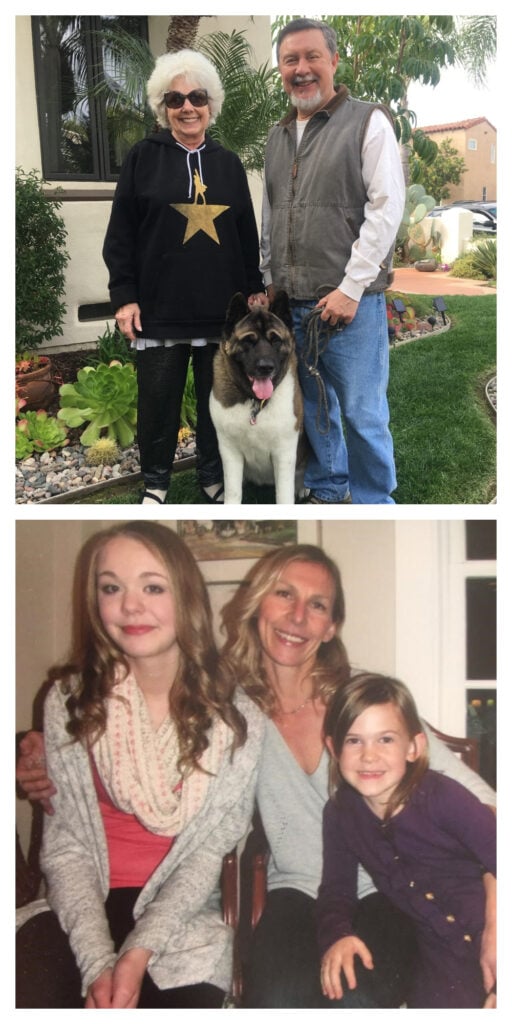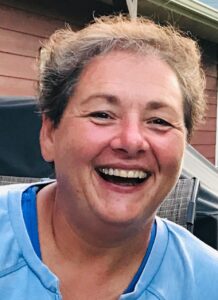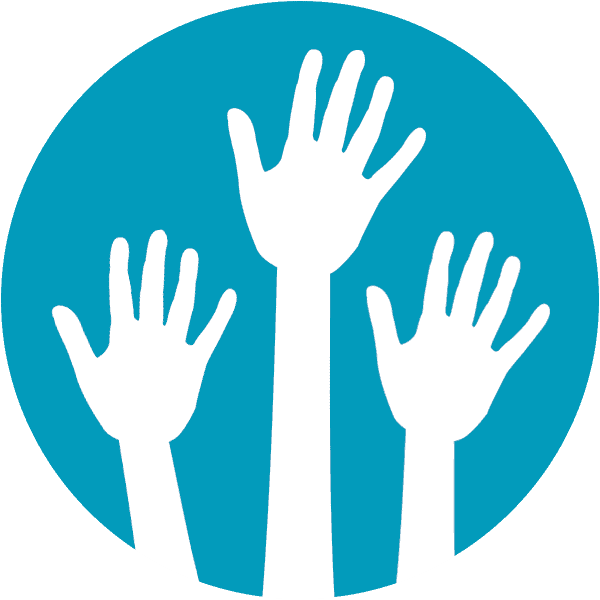Legacy Society Honors Visionary Donors

This article was originally published in the Dystonia Dialogue.
The DMRF was only a few years old in the late 1970s when Susan Aguilera’s seven-year-old daughter Emma was diagnosed with dystonia by a special panel of neurologists in San Diego. Finally there was an explanation for why her little girl had lost the ability to write, struggled to walk, couldn’t feed herself, and wasn’t sleeping. Susan recalls being “crushed” by the diagnosis and the shock of the lead physician informing her she would “have to find someone else” for treatment because no doctor in the area was familiar with dystonia.
Fatefully, Susan was made aware of John Menkes, MD, renowned child neurologist and DMRF’s founding Scientific Director, practicing in nearby Los Angeles. Dr. Menkes confirmed the diagnosis and prescribed oral medications, hoping to slow the progression of the disabling symptoms. “He said the goal is to keep her on her feet, but I don’t know if she will be able to write,” recalled Susan, “but two years later she was writing.”
Emma is now a mother and full-time social worker who works with older adults. “Emma struggled a long time, but she’s still on her feet,” said Susan. “I hope her story gives hope to someone. These kinds of little miracles do happen.”
Over the years, Susan looked to the DMRF for information and support. She and her husband Augi became loyal donors and members of the Legacy Society. The DMRF established the Legacy Society to honor members who have generously made a lasting commitment to supporting dystonia research by naming DMRF in their estate plans. Donors who make such a pledge, at any level, are Legacy Society members.
“As a parent, I am totally grateful,” said Susan “I think DMRF is outstanding. I know you are always out there. I call if I have an issue or a question, and knowing you are working on dystonia has provided a level of support for me. It helps to know others are out there and that you’re not alone. ”
Generous planned gifts have allowed the DMRF to fund crucial research aimed at developing new treatments while also supporting the programs for families affected by all types of dystonia waiting for a cure.

“I’m sick of dystonia,” said Sheri Grube with a laugh. “I would love a cure any time and the sooner we get more research funded the sooner that can happen.” She too is a generous supporter of DMRF and member of the Legacy Society.
“Our family is blessed to be able to contribute financially to research,” she explained. “My husband and I grew up poor farm kids, so we save everything for a rainy day, and I wanted to pass it on somehow. When it came to estate planning, I decided I’m doing it.”
Sheri resides in Minnesota and has two adult children. She worked in the construction industry as a mechanical designer before being forced to retire due to multiple medical issues, including transverse myelitis, an inflammation of the spinal cord. She then began experiencing tremors and involuntary movements, and after five years of seeking answers was diagnosed with dystonia. Since 2005 she has worked as a part-time visual artist and “full-time dystonia awareness advocate.”
“It’s really important to get the word out,” she said. “People may think it’s just my head shaking a little. Until they see me with my cane, they think it’s invisible. They don’t understand that a good day may be four hours of feeling ok, and if you overdo it those days, you might be laid up for a week to recover. Sometimes you are just trying to make it through the day and distract yourself from the pain.”
Planned gifts are contributions that are committed to in the present, but given in the future. Planned gifts may offer a variety of benefits to donors, including flexibility and tax savings. They often enable individuals or families to contribute more generously to the DMRF than traditional donations. For example, one of the easiest options is to remember the DMRF in a will.
If you would like more information on planned giving options, please contact the DMRF.
The Dystonia Medical Research Foundation is a 501(c)(3) non-profit organization dedicated to advancing research for improved dystonia treatments and ultimately a cure, promoting awareness, and supporting the well-being of affected individuals and families.



